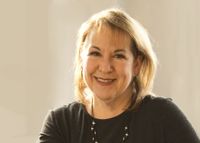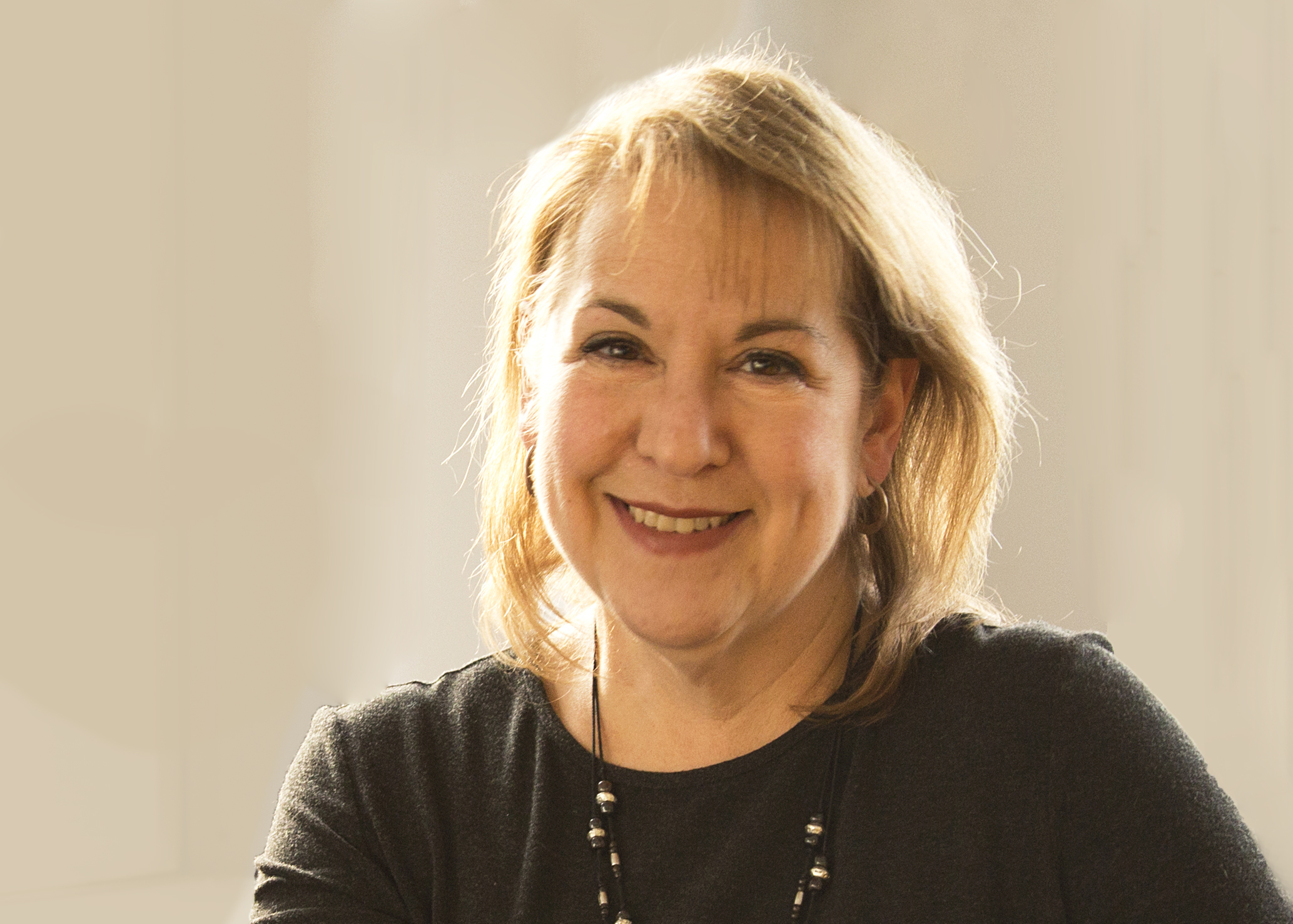A Guide to Starting a Successful Business After 50
Age can be an advantage for older entrepreneurs looking to extend their careers or supplement their income in retirement.


Profit and prosper with the best of Kiplinger's advice on investing, taxes, retirement, personal finance and much more. Delivered daily. Enter your email in the box and click Sign Me Up.
You are now subscribed
Your newsletter sign-up was successful
Want to add more newsletters?

Delivered daily
Kiplinger Today
Profit and prosper with the best of Kiplinger's advice on investing, taxes, retirement, personal finance and much more delivered daily. Smart money moves start here.

Sent five days a week
Kiplinger A Step Ahead
Get practical help to make better financial decisions in your everyday life, from spending to savings on top deals.

Delivered daily
Kiplinger Closing Bell
Get today's biggest financial and investing headlines delivered to your inbox every day the U.S. stock market is open.

Sent twice a week
Kiplinger Adviser Intel
Financial pros across the country share best practices and fresh tactics to preserve and grow your wealth.

Delivered weekly
Kiplinger Tax Tips
Trim your federal and state tax bills with practical tax-planning and tax-cutting strategies.

Sent twice a week
Kiplinger Retirement Tips
Your twice-a-week guide to planning and enjoying a financially secure and richly rewarding retirement

Sent bimonthly.
Kiplinger Adviser Angle
Insights for advisers, wealth managers and other financial professionals.

Sent twice a week
Kiplinger Investing Weekly
Your twice-a-week roundup of promising stocks, funds, companies and industries you should consider, ones you should avoid, and why.

Sent weekly for six weeks
Kiplinger Invest for Retirement
Your step-by-step six-part series on how to invest for retirement, from devising a successful strategy to exactly which investments to choose.
Here's a quick pop quiz: What do Ray Kroc, Colonel Sanders, Arianna Huffington, Bernie Marcus and Grandma Moses have in common?
Answer: They all launched highly successful businesses — McDonald’s, KFC, a major media company, The Home Depot and a career as a preeminent folk-art painter — after age 50.
Like these icons, a growing number of people are choosing to become entrepreneurs in their 50s, 60s and beyond.
From just $107.88 $24.99 for Kiplinger Personal Finance
Become a smarter, better informed investor. Subscribe from just $107.88 $24.99, plus get up to 4 Special Issues

Sign up for Kiplinger’s Free Newsletters
Profit and prosper with the best of expert advice on investing, taxes, retirement, personal finance and more - straight to your e-mail.
Profit and prosper with the best of expert advice - straight to your e-mail.
Recently, nearly one-fourth of new businesses have been started by founders between the ages of 55 and 64, up from 15% two decades ago, according to the Kauffman Foundation, a nonprofit that fosters entrepreneurship.
Overall, the U.S. Census Bureau reports, more than half of small businesses are owned by people 55 and older, with other surveys suggesting the number may be even higher.
Your odds of doing well are pretty good
Starting a business after 50 can be a great way to add years to your career or earn extra income in retirement. And while the chances you’ll strike it rich by creating a top-selling fast-food franchise or a multibillion-dollar retail operation are slim, your odds of doing well are far greater than for younger founders.
Research shows that people launching a business at age 50 are twice as likely to succeed as their 30-year-old counterparts, and the probability of being solidly profitable rises further with age after that.
“The wisdom, experience and network built up over the course of a long career can really pay off for older entrepreneurs,” says Andrew Chamberlain, principal economist at Gusto, an online payroll and human-resources platform for small and midsize businesses.
Still, entrepreneurship is not without risks. That’s particularly true if you are giving up a steady income to launch your venture or pulling cash from a 401(k) for funding — at exactly the point in life that most people of a similar age are trying to pump up savings before retirement or preserve nest eggs they’ve already built.
“Launching a business can be a great move when you’re older, but it’s not an easy path,” says certified financial planner Jovan Johnson, co-owner of Piece of Wealth Planning, a financial planning firm in Atlanta that primarily serves small-business owners, private practitioners and independent contractors.
“It takes the right mindset, the right business and the right setup to succeed without sacrificing your current lifestyle or future retirement.”
Intrigued by the possibilities? Here’s what experts in entrepreneurship, along with people who have recently launched businesses, say it takes to achieve success.
Build on what you know
Just how much more successful are older entrepreneurs? Gusto’s research shows that Baby Boomers using its platform take home $60,000, on average, in their first year of operation.
That’s six times as much as the $10,000 that Gen Z founders are able to pay themselves in year one, and it’s considerably more than Millennial entrepreneurs’ first-year salaries as well.
Gusto’s Chamberlain attributes this greater profitability to older entrepreneurs’ deep experience in their industry, which allows them to better identify unfulfilled market needs.
Some 44% of founders in a recent Gusto survey said they started a business precisely because they saw a new opportunity, compared with 34% of the respondents overall.
“The longer you’re in a field, the more likely you are to see those unmet opportunities, which can be a strong basis for your business,” Chamberlain says.
If you launch a business when you’re older, you also have an edge because you’re likely to have a stronger business network, existing client relationships and initial credibility and authority built through a long body of work.
Says Chamberlain, “These are advantages that just come with age and a long career history.”
“Utilizing the same skill set you’ve used throughout your career allows you to fast-track the new business,” adds Johnson. “It’s a very different proposition than if you’ve been an engineer or lawyer and now want to buy a food truck or open a restaurant.”
Leveraging your knowledge
Building off his industry experience is what Rick Moore, 55, had in mind when he launched his consulting business, The RGM Group, in Colorado Springs last year.
The former deputy chief of staff for plans and programs for the Air Force, Moore retired in 2024 after 32 years of service so that his son, then a rising eighth grader, could spend his high school years in the same place with the same group of friends.
Now Moore, who had been responsible for the Air Force’s five-year budget and six- to 30-year plan, provides insights into the federal government’s budgeting process for companies that want to work with the Defense Department.
“I’ve been able to leverage the knowledge that I gained in the military to continue to serve the Air Force, helping small businesses get to a point where they can provide a much-needed service or product that helps airmen,” he says.
To Moore’s surprise and gratification, the consulting business has been a success from the start. He managed to build a client list quickly through referrals and cold calls to companies he thought would be a good fit.
The $156 billion in mandatory defense funding passed by Congress over the summer has also been good for business. “Luck and timing are a part of all of these things, and mine happened to be good,” he says.
The greatest challenge so far? “In the military, I always knew what the near future held, and what my next paycheck would be; it was relatively certain and very secure,” he says. “I’m working harder and more than I thought I might when I worried I wouldn’t have enough business, but not harder and more than I desire. It’s the best problem to have.”
Create a brain trust
One other critical component of Moore’s success: He has been able to call on a strong professional network for assistance with both logistics and conceptualization, from how to find and approach clients to the best way to set up the company as a legal entity.
“I got a ton of good, practical advice from people who had walked this path before me, and I have found that remarkably helpful,” he says.
Developing that circle of trusted advisers helps you fill the gaps in your knowledge.
“You’re not going to have expertise in everything, but given your age and the work you’ve done, you probably know people who, for example, have strong marketing or financial backgrounds if you don’t,” says Elizabeth Isele, founder of the Institute for Experienced Entrepreneurship and a leading speaker and researcher on the topic.
Your brain trust can also act as a sounding board for your ideas.
“You need to identify people who will be really honest with you about whether they think this business will fly or not,” Isele says. “You want people who will help validate the idea and make sure it’s marketable, as well as people who can help you actually operationalize the idea.”
You don't need your family's opinion
Who shouldn’t be in the brain trust? Your family, Isele says.
“Asking your family for their opinion on your business is a classic mistake, because they’re not about to give you an honest opinion,” she says. “They will either be blindly supportive or immediately pooh-pooh the idea because, perhaps unconsciously, they may have their own agenda.”
In addition to people you know personally, you can connect with advisers who will provide free technical expertise, answer questions about best practices and generally assist in getting the business off the ground through SCORE, a nonprofit partly funded by the Small Business Administration.
Its seasoned mentors, often retirees themselves, are experienced in everything from creating a business plan to marketing and customer service (find a mentor in your area at score.org/find-mentor).
The SBA’s regional Small Business Development Centers may also offer free or low-cost counseling in some areas (check sba.gov/local-assistance), as do some state- and local-government business development initiatives.
Some of these services, though, may be affected by recent federal funding cuts.
Do the (side) hustle
Sometimes you have little choice but to make a full-body leap into entrepreneurship. That may be the case if you are laid off from a job, still need to earn a living and have had trouble finding another staff position — something more likely to happen later in your career.
One-fourth of entrepreneurs age 55 and older in the Gusto survey started their businesses due to job loss, compared with just 10% of founders on the platform overall.
But if you have the option to stay on at your current job and start your venture as a sideline business, experts say that’s typically the better way to go.
You’ll keep money coming in while you’re getting the business off the ground, and you won’t have to dig into your savings to pay the bills until your business is profitable — if it becomes profitable.
It also gives you time to test the idea, see what works and what doesn’t, and get a sense of whether you can really make a success of it while you still have a financial safety net.
“If you start small and learn the ropes while you’re still on someone else’s dime, it takes a lot of the fear and stress out of launching a business,” says Ross Buhrdorf, CEO of ZenBusiness, an online platform that provides a suite of services to help entrepreneurs create, manage and maintain their businesses.
“Once it gets going and growing, you can progress into a full-time job. But don’t jump off the financial cliff first.”
The most important thing to learn during this sideline period, Buhrdorf says: “You need to make sure someone — actually, lots of someones — will pay you for what you are selling. It sounds so basic, but not knowing is the number one thing that will trip you up.”
Lean on technology for help
A variety of digital tools, from artificial intelligence to Zoom, can help you establish, manage and promote your business at no or low cost. But entrepreneurs in their 60s, 70s and beyond can sometimes be reluctant to use them.
“Embrace technology,” advises Marisa Giorgi, director of education for Older Adults Technology Services (OATS), a nonprofit affiliate of AARP that offers a series of free technology courses for older entrepreneurs through Senior Planet, its flagship program.
“Think about whether there might be a digital or tech solution for whatever business problem or challenge you have in front of you.”
At a minimum, says Giorgi, you need to be on LinkedIn, with a professional page for yourself as well as your new venture, and establish a separate e-mail account for business communication.
You’ll want your own website to promote the business, too. (You can create one yourself with a user-friendly service such as Google Sites, or you can hire a pro to do it for you.)
Online payment services such as Cash App, PayPal and Venmo can simplify getting compensated for your services.
Crowd-funding sites such as GoFundMe, Indiegogo and Kickstarter can help you raise capital for the business so you don’t drain your savings to run it until you become profitable.
A bonus to using a crowdfunding site is that you will get a solid early read on what others think about your business idea.
“If no one wants to risk investing a dollar, you know that either a market doesn’t exist for what you want to do or no one believes it does, so you need to work on your messaging,” says Isele.
“If someone comes back and says, ‘I’m a little hesitant to invest, but did you ever think about doing this … ?,’ that’s free intel. You would have to pay a marketing firm thousands of dollars to get those insights.”
AI can be especially helpful, says Giorgi, who suggests making a list of all the tasks involved in running your business — say, pricing, invoicing, marketing, writing e-mails and analyzing market data — and ask an AI tool such ChatGPT, Claude, Google Gemini or Microsoft Copilot (all offer a free version) which jobs it can help with.
Says Giorgi, “AI can act as your intern or collaborator, freeing you up to focus on the things only you as CEO of the company can do.”
Courses can help too
Courses from Senior Planet have helped Lorena Jiron, 70, become comfortable with AI tools, digital payments, cybersecurity and social media that now help her manage and promote the life-coaching business she launched last year.
A U.S.-educated former interior designer, Jiron had worked for years as a facilitator of emotional wellness programs for nonprofits in Central America but moved back to the U.S. with her husband in 2023 to be closer to their adult children.
“Before I took the classes, I had to rely on my daughters for tech help, and they’re very busy people,” she says. “The digital training gives me independence and autonomy.”
It has also given her a new client, because Jiron, a bilingual coach, is now conducting workshops in Spanish for Senior Planet, helping the organization expand its audience.
“People ask me why I don’t just relax and enjoy retirement. But I’m passionate about this work, and it keeps me going and happy,” says Jiron. “And while we don’t need the money I make to live on, it’s nice to have that extra level of financial comfort.”
Don’t bet the farm — or the 401(k)
Apart from the cost of getting her certification as a life coach, Jiron was able to launch her business with relatively little money. That’s common. Although the particulars vary with the type of business, studies show that the majority of entrepreneurs launch their ventures with a modest initial investment, typically $5,000 or less.
That wasn’t the case for Noelle Boyle, 58. After she was laid off from her job as a senior marketing manager at Dell, where she’d worked for 18 years, Boyle invested $1 million, mostly from her 401(k), to open a branch of The Lash Lounge, a salon franchise that specializes in lash extensions, lifts and related services.
She learned about the opportunity from a franchising consultant during her outplacement counseling. “It was something I could pour my passion into,” she says. “Helping people feel better about themselves gave me a raison d’être I didn’t have in the tech world.”
Since opening her first salon in 2017, Boyle has bought three more, funded mostly via business loans. The business is flourishing, she says, with market dominance in the Austin area. Boyle has paid off some of her loans but hasn’t yet earned back her initial investment.
Still, she’s comfortable with the risks she has taken and feels she’s leveraging the marketing, public relations and accounting skills she built over the course of her tech career.
She says that her husband has been able to support them while she has been building the business, and notes that, fortunately, he has ample savings and a comfortable pension for when they eventually retire.
“I’m playing the long game,” Boyle says. “I’m being aggressive with my growth strategy, but I only take risks I’ve carefully considered and am comfortable with.”
Considering expenses, revenue and profits
Mapping out, realistically, what the first one to three years of your venture will look like in terms of expenses, revenue and potential profits is vital to ensuring that you’ll be okay financially, says Johnson, the Atlanta CFP.
He encourages clients to think about the worst-case scenario — how many years of savings might you need to forgo, and how would that impact your retirement? How would you pay the bills?
“Getting input from a financial adviser or another third-party expert is helpful to catch any blind spots, because if you’ve never launched a business before, there are going to be some expenses and hiccups you’re just not aware of,” he says.
Johnson recommends, if at all possible, building up your emergency fund before you launch, as well as having separate accounts for those surprise personal and business expenses.
To reduce bookkeeping challenges and potential liability issues, he also recommends opening a separate regular bank account and credit card for the business.
As for using your retirement savings to help fund your venture and pay your living expenses in the early stages, Johnson, like most experts, is not a fan.
“It’s a big gamble, especially when you’re older,” he says. “I would never tell a client no, but it’s important to project the impact, carefully consider it, and understand that if you go this route, you’re probably going to retire later than you originally planned.”
Of course, if you love the work, that may not matter.
“I’m pursuing my passion and feel like I’m genuinely making people’s lives better,” says Boyle. “I’m exactly where I need and want to be.”
Note: This item first appeared in Kiplinger Personal Finance Magazine, a monthly, trustworthy source of advice and guidance. Subscribe to help you make more money and keep more of the money you make here.
Related content
Profit and prosper with the best of Kiplinger's advice on investing, taxes, retirement, personal finance and much more. Delivered daily. Enter your email in the box and click Sign Me Up.

An award-winning financial journalist and editorial leader, Diane Harris is currently deputy editor of Kiplinger Personal Finance, where she helps direct the magazine’s coverage of retirement, savings, taxes, credit, financial planning, family finance and other core personal finance topics.
With more than three decades of magazine and digital journalism experience, Harris is the former deputy editor of Newsweek, as well as the former editor-in-chief of Time Inc.’s Money magazine. Her work has also appeared in The New York Times, TIME magazine, AARP the Magazine and AARP.com among other publications.
-
 Dow Loses 821 Points to Open Nvidia Week: Stock Market Today
Dow Loses 821 Points to Open Nvidia Week: Stock Market TodayU.S. stock market indexes reflect global uncertainty about artificial intelligence and Trump administration trade policy.
-
 Nvidia Earnings: Live Updates and Commentary February 2026
Nvidia Earnings: Live Updates and Commentary February 2026Nvidia's earnings event is just days away and Wall Street's attention is zeroed in on the AI bellwether's fourth-quarter results.
-
 I Thought My Retirement Was Set — Until I Answered These 3 Questions
I Thought My Retirement Was Set — Until I Answered These 3 QuestionsI'm a retirement writer. Three deceptively simple questions helped me focus my retirement and life priorities.
-
 I Thought My Retirement Was Set — Until I Answered These 3 Questions
I Thought My Retirement Was Set — Until I Answered These 3 QuestionsI'm a retirement writer. Three deceptively simple questions helped me focus my retirement and life priorities.
-
 How You Can Use the Financial Resource Built Into Your Home to Help With Your Long-Term Goals
How You Can Use the Financial Resource Built Into Your Home to Help With Your Long-Term GoalsHomeowners are increasingly using their home equity, through products like HELOCs and home equity loans, as a financial resource for managing debt, funding renovations and more.
-
 How to Find Free Money for Graduate School as Federal Loans Tighten in 2026
How to Find Free Money for Graduate School as Federal Loans Tighten in 2026Starting July 1, federal borrowing will be capped for new graduate students, making scholarships and other forms of "free money" vital. Here's what to know.
-
 We've Reached Our $5 Million Retirement Savings Goal, but at 66, My Husband Still Doesn't Feel Ready.
We've Reached Our $5 Million Retirement Savings Goal, but at 66, My Husband Still Doesn't Feel Ready.We are 66 and have reached our retirement savings goal. Our plan is to travel, but my husband can't seem to let go of work.
-
 Aging in Place Can Be Bad for Your Health: This Financial Pro's Alternative Is a No-Brainer
Aging in Place Can Be Bad for Your Health: This Financial Pro's Alternative Is a No-BrainerWhy age alone in financial hardship when you can enjoy companionship — and share the costs of housing, groceries and health care — with a small community of friends?
-
 When It Comes to Retirement Planning, Be More Spock Than Scotty: It's Logical, Captain
When It Comes to Retirement Planning, Be More Spock Than Scotty: It's Logical, CaptainIf you're worried about your retirement, address the concerns in a logical sequence, talk honestly with your team and prepare to go boldly into the future.
-
 A 5-Step Guide to Getting AI to Give You Actionable Insight Rather Than Polished Nonsense
A 5-Step Guide to Getting AI to Give You Actionable Insight Rather Than Polished NonsenseAI can be a powerful specialist, but it can sound smarter than it is when it comes to understanding real-world stakes. That means you have to be the strategist.
-
 5 Side Gigs That Let You Travel the World in Retirement
5 Side Gigs That Let You Travel the World in RetirementEarn as you explore: High-flexibility side gigs that enable retirees to blend work and travel in 2026.